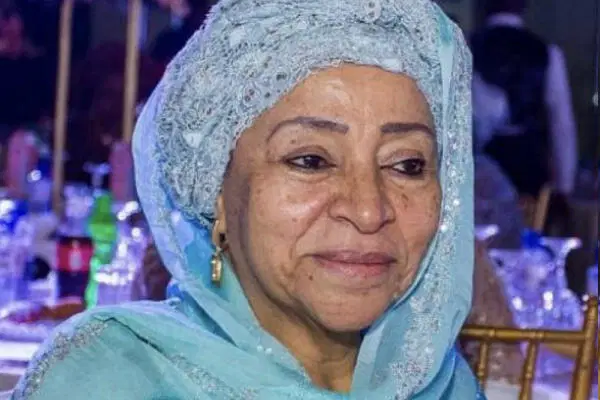Africa
Maryam Abacha, Your Husband Stole Nigeria’s Future – And the World Has the Receipts -By Jeff Okoroafor
Declassified documents and court filings reveal Abacha’s methods. He withdrew $2.2 billion under the guise of “national security” spending, which was never accounted for. Companies like Snamprogetti, an Eni subsidiary, admitted in U.S. court to paying $180 million in bribes to Abacha’s regime for LNG contracts. The Panama Papers and Pandora Papers exposed how Abacha’s family used British Virgin Islands, Luxembourg, and Swiss banks to hide stolen wealth. His son, Mohammed Abacha, was jailed for receiving $1.4 billion in illegal transfers, while his associate Bagudu, now Kebbi State Governor, helped launder funds.

In recent years, Maryam Abacha, the widow of Nigeria’s former military dictator, General Sani Abacha, has repeatedly attempted to rewrite history by claiming her late husband was a selfless leader who did not steal from Nigeria. Such assertions are not only false but an insult to the millions of Nigerians who suffered under his brutal and corrupt regime (1993–1998). The empirical evidence of Abacha’s looting is vast, well-documented by international investigators, and corroborated by recovered funds.
Sani Abacha’s regime was one of the most kleptocratic in modern history. According to Transparency International, he stole an estimated $3 billion to $5 billion from Nigeria’s treasury, stashing the funds in foreign banks, shell companies, and offshore accounts. The World Bank and Swiss government have confirmed that Abacha’s family and associates systematically siphoned money meant for public infrastructure, healthcare, and education.
Nigeria and foreign governments have recovered over $3.6 billion of Abacha’s loot since 1999, with more still being traced. Key recoveries include $723 million from Switzerland in 2005, returned after a legal battle. Another $1.2 billion was seized from the U.S. and Jersey in 2020, linked to hidden accounts controlled by Abacha’s associates. The UK froze and returned £211 million in 2021, tied to his money laundering network, while Liechtenstein repatriated $150 million in 2014 after a decade-long legal process.
These funds were stolen through fraudulent contracts, inflated arms deals, and direct withdrawals from the Central Bank of Nigeria (CBN). The U.S. Department of Justice (DOJ) described Abacha’s scheme as “brazen acts of kleptocracy,” where he and his associates used fake security contracts, offshore fronts, and bribery to move billions out of Nigeria.
Declassified documents and court filings reveal Abacha’s methods. He withdrew $2.2 billion under the guise of “national security” spending, which was never accounted for. Companies like Snamprogetti, an Eni subsidiary, admitted in U.S. court to paying $180 million in bribes to Abacha’s regime for LNG contracts. The Panama Papers and Pandora Papers exposed how Abacha’s family used British Virgin Islands, Luxembourg, and Swiss banks to hide stolen wealth. His son, Mohammed Abacha, was jailed for receiving $1.4 billion in illegal transfers, while his associate Bagudu, now Kebbi State Governor, helped launder funds.
Maryam Abacha has claimed her husband was “a good man who served Nigeria,” ignoring critical facts. Nigeria’s foreign reserves collapsed under Abacha, dropping from $9.8 billion in 1993 to less than $4 billion by 1998 despite high oil prices. Poverty skyrocketed, with over 70% of Nigerians living in extreme poverty by 1998 due to economic mismanagement. The UN, U.S., and EU sanctioned his regime for corruption and human rights abuses, further cementing his legacy as a plunderer.
The evidence is irrefutable: Sani Abacha was a thief on an industrial scale. While Maryam Abacha may wish to rehabilitate her family’s name, the facts—backed by Interpol, court rulings, and recovered billions—speak for themselves. Nigeria must continue pursuing every stolen dollar and ensure such grand theft never happens again.
Enough of the lies. The world knows the truth.

Jeff Okoroafor
Jeff Okoroafor is a social accountability advocate and a political commentator focused on governance, accountability, and social justice in West Africa.

























